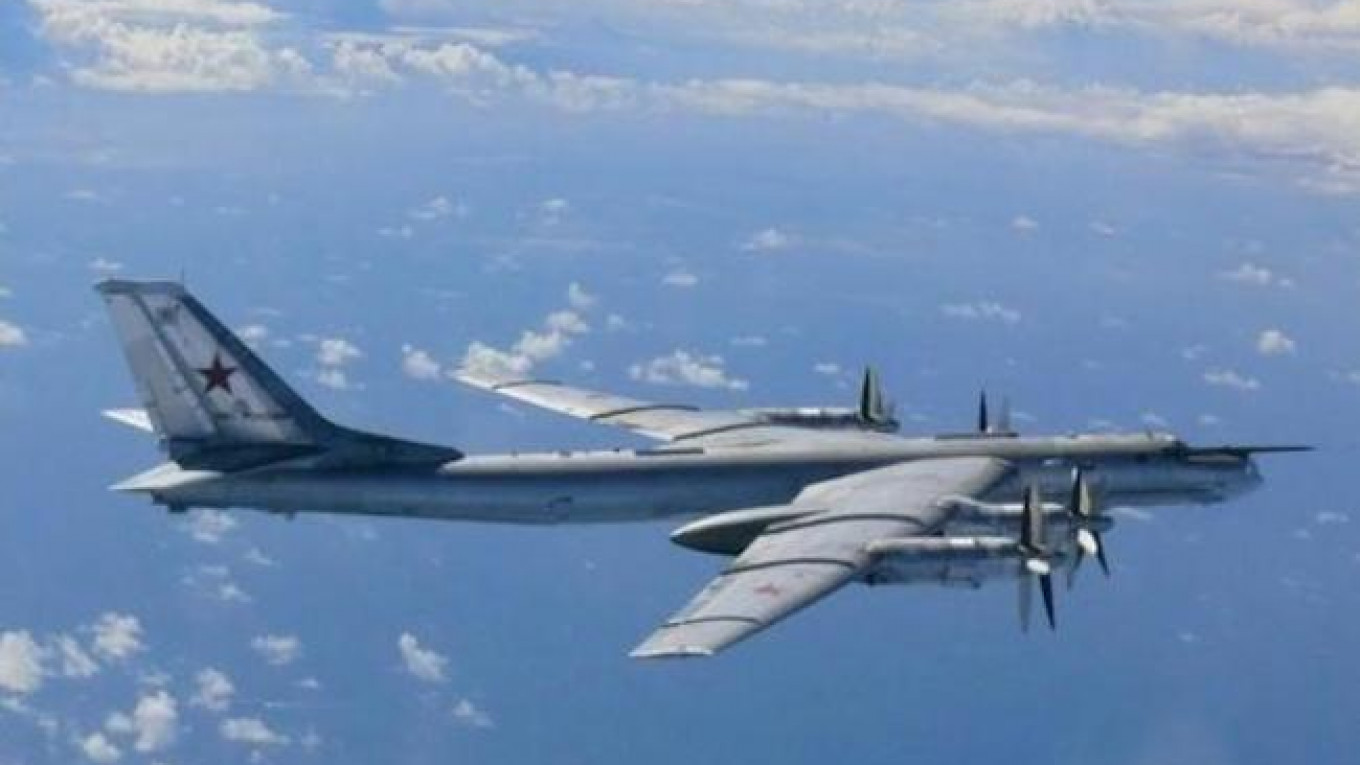Russia on Friday rejected U.S. concerns about its use of a former American base in Vietnam for the refueling of Russian bomber flights around U.S. territory in the Pacific, dismissing recent U.S. statements as "puzzling" and "strange."
It was reported on Wednesday that the United States had asked Vietnam to stop letting Russia use Vietnam's Cam Ranh Bay for tanker aircraft that have refueled nuclear-capable bombers engaged in shows of strength over the Asia-Pacific region.
"It is strange to hear such statements from representatives of the state whose armed forces are permanently stationed in a number of Asia-Pacific countries and which continues to increase its level of military activity in the region," Russia's Defense Ministry said.
It said U.S. statements that the refueling of Russian bombers from Vietnam could lead to increased regional tensions was "puzzling."
The ministry said Russian Air Force activities and cooperation with Vietnam were "carried out in strict accordance with international norms and bilateral agreements are not directed against anyone whatsoever and shall not be a threat to peace and stability in the Asia-Pacific region."
General Vincent Brooks, commander of the U.S. Army in the Pacific, said last week the planes had conducted "provocative" flights, including around the U.S. Pacific Ocean territory of Guam, home to major American bases.
Russia's Defense Ministry said on Jan. 4 that Russian Il-78 tanker aircraft had used Cam Ranh Bay in 2014, enabling the refueling of nuclear-capable TU-95 "Bear" strategic bombers, a statement also reported in Vietnam's state-controlled media.
On Thursday, U.S. State Department spokeswoman Jen Psaki said the United States did not want Russia to use Cam Ranh Bay.
"We have urged Vietnamese officials to ensure that Russia is not able to use its access to Cam Ranh Bay to conduct activities that could raise tensions in the region," she told a regular news briefing.
The Voice of America radio station quoted a spokeswoman for the U.S. embassy in Hanoi as saying Thursday that the U.S. request was conveyed to Vietnamese officials last week and that she was unaware of a Vietnamese government response.
The Vietnamese government has not responded to requests for comment.
"We do not intend to listen"
On Friday, Russia's TASS news agency quoted Russia's ambassador to Vietnam, Konstantin Vnukov, as saying that Vietnam and Russia were independent sovereign states that "do not need any instructions or recommendations by anyone, and we do not intend to listen to requirements."
Russia and Vietnam are longtime allies, and Moscow was the main backer of Hanoi against the United States in the Vietnam War that ended in 1975.
But the current controversy comes at a time of steadily warming ties between Washington and Hanoi, especially in security, given shared concerns about China's growing power and assertiveness in the Asia-Pacific region.
Washington is eager to secure greater access itself to Cam Ranh Bay as part of its strategic "pivot" to Asia to counter China's growing strength. U.S. ships have visited for repairs in recent years.
U.S. officials have been careful not to criticize Vietnam itself over the Russian flights, stressing that Washington respected Hanoi's right to enter agreements with other countries.
On Thursday, a senior official at the U.S. State Department told Reuters that Washington did not see "any indication at all that the Vietnamese relationship with Russia is any way meant to reduce the relationship, or weaken, or impact the relationship with the United States."
A Message from The Moscow Times:
Dear readers,
We are facing unprecedented challenges. Russia's Prosecutor General's Office has designated The Moscow Times as an "undesirable" organization, criminalizing our work and putting our staff at risk of prosecution. This follows our earlier unjust labeling as a "foreign agent."
These actions are direct attempts to silence independent journalism in Russia. The authorities claim our work "discredits the decisions of the Russian leadership." We see things differently: we strive to provide accurate, unbiased reporting on Russia.
We, the journalists of The Moscow Times, refuse to be silenced. But to continue our work, we need your help.
Your support, no matter how small, makes a world of difference. If you can, please support us monthly starting from just $2. It's quick to set up, and every contribution makes a significant impact.
By supporting The Moscow Times, you're defending open, independent journalism in the face of repression. Thank you for standing with us.
Remind me later.






